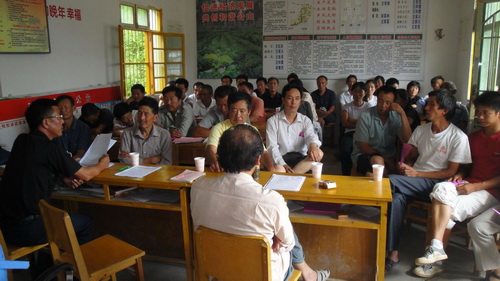Grassroots Government: Institutional Conflict and Governance Crisis
2015-12-16
Zhao Shukai, Development Research Center of the State Council
The effectiveness of state governance system and governance ability is reflected in the performance of grassroots governance. Current grassroots governance is beset with striking problems which are manifested at social and government levels. Viewing from the social side, conflicts in rural areas are intensifying and resistance of the rural masses against grassroots government are increasing. Viewing from the government side, the relationship among governments of various levels is becoming intense, and governments of different levels and departments of the same level are losing mutual trust and cooperation. Conflicts at the social level and those within the government system have internal connections since the conflicts within government system directly lead to a number of social conflicts. 1. Grassroots villages have been caught in a dilemma between "strong development" and "weak governance". Neither rapid economic growth nor vast investment in public goods can improve village governance fundamentally. 2. The institutional conflicts of government per se have brought about poor village governance. Such institutional conflicts are mainly observed in budget management, official management, government accountability, and between grassroots government and grassroots governance. All these conflicts have seriously undermined the efficiency of government authority and governance, resulting directly in low quality village governance. 3. The key to good governance in China's villages lies in how to resolve the conflicts within governance mechanism through institutional innovation. In terms of research on the performance of Party organizations at grassroots level, it should focus on observing the operation of county- and city-level Party organizations, comprehensively review and sum up their experience in making innovations in enhancing transparency and accountability so as to lend support for further reform of grassroots Party organizations. If no major breakthrough of reform is made at the political level, governance crisis would have a widespread outbreak sooner or later. Perhaps from now on, government reform should enter a new phase when political reform and administrative reform are carried out separately. The administrative and institutional arrangement of grassroots government should not be made by the central government since the latter may not be able to treat it properly. The central government should bear more responsibility in the process of local political reform, actively plan and design the basic framework and approaches of political reform, and become a powerful driver for initiating direct election of leaders of Party organizations and governments at the county and township level. If political institutional arrangement has been well adjusted, grassroots government would naturally address relevant issues in line with these arrangements.















